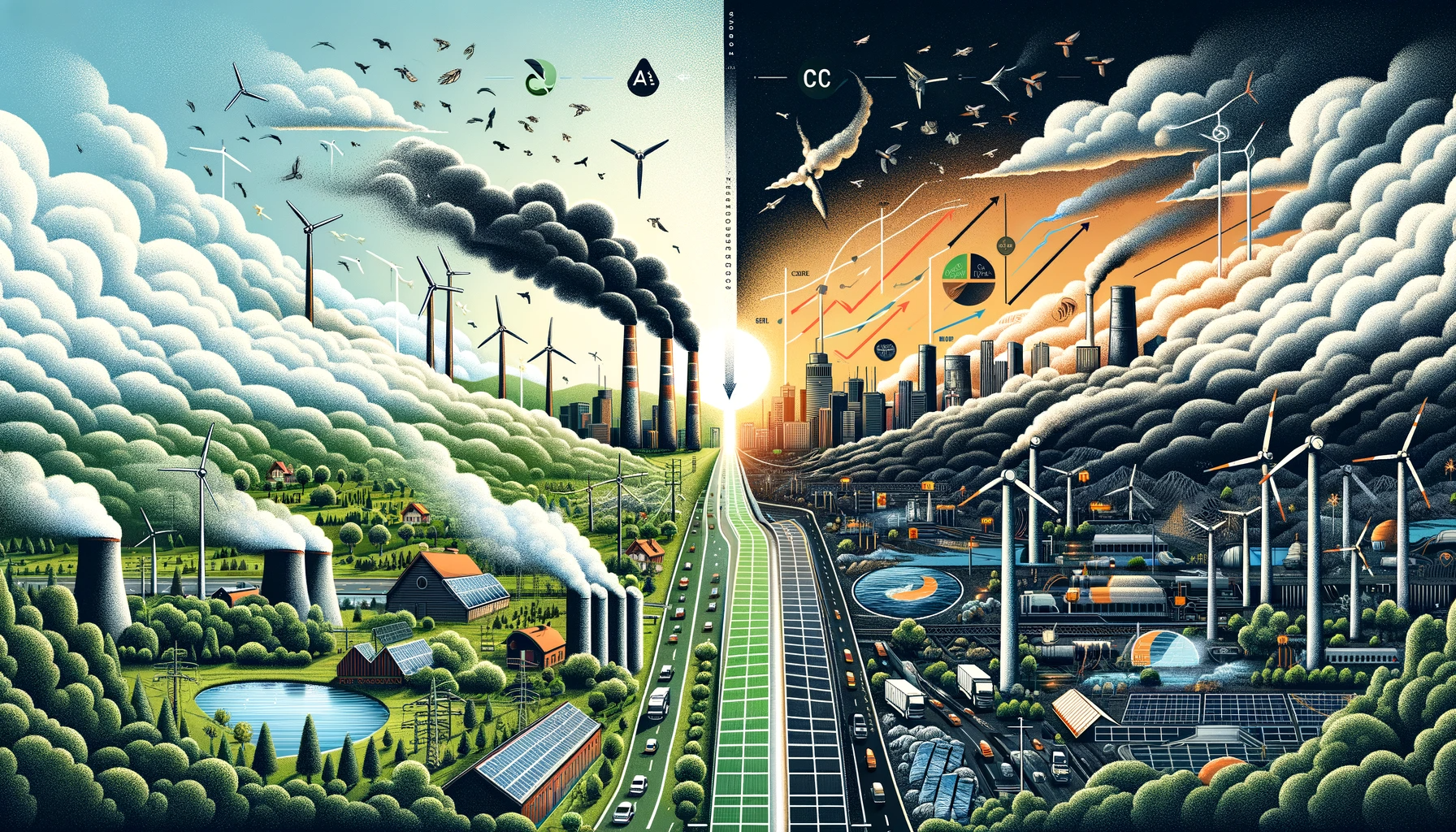The pursuit of carbon neutrality, a state where carbon emissions are balanced by carbon sequestration or offsetting, is a global imperative in the fight against climate change. A critical component of this endeavor is the advancement and integration of renewable energy technologies. Unlike fossil fuels, renewable energy sources such as solar, wind, hydroelectric, and emerging innovations like tidal and geothermal energy offer sustainable alternatives that emit little to no greenhouse gases.
Solar Energy Advancements Solar energy, primarily harnessed through photovoltaic (PV) cells, has seen significant technological improvements. Innovations in materials and design have led to higher efficiency and lower costs. For instance, perovskite solar cells are emerging as a promising alternative to traditional silicon-based cells, offering improved efficiency and versatility in different environments (Miller & Zhou, 2023). Such advancements enhance the feasibility of solar installations, from large-scale solar farms to residential rooftop panels.
Wind Energy Progress Wind energy, particularly offshore wind farms, represents a major leap in renewable energy. These offshore installations, including floating wind turbines, exploit stronger and more consistent wind speeds, thereby increasing energy output significantly. This evolution from onshore to offshore wind energy is crucial in regions with limited land availability for large wind farms (Peterson, 2022).
Hydroelectric Power Innovations Hydroelectric power, though one of the oldest renewable sources, is evolving to minimize environmental impacts. The focus is shifting towards smaller-scale, run-of-the-river projects, which offer renewable solutions with less ecological disruption. These projects are particularly vital for remote and rural energy access, aligning with global sustainable energy goals (Singh & Cohen, 2021).
Emerging Technologies: Tidal and Geothermal Energy Tidal and geothermal energies, though less widespread, hold great potential. Tidal energy leverages the predictability of ocean tides, providing a consistent and reliable energy source. Geothermal energy, harnessing the Earth’s internal heat, offers a continuous power supply. Both technologies have minimal environmental footprints and provide base-load power, a significant advantage over the intermittency of solar and wind (Lopez & Martinez, 2023).
Energy Storage and Grid Integration The integration of these renewable technologies into the energy grid is bolstered by advances in energy storage systems. Modern batteries, with improved efficiency and larger capacities, are key in managing the intermittency challenges of renewable sources, ensuring a stable and reliable energy supply (Khan & Johansson, 2022).
Socio-Economic Benefits The transition to renewable energy is not just an environmental necessity but also a socio-economic opportunity. It promises job creation, reduced air pollution, and enhanced energy security. Recognizing these benefits, governments are increasingly investing in renewable projects, providing financial incentives, and implementing supportive policies (Griffiths & Chang, 2022).
In summary, renewable energy technologies are central to the global effort to achieve carbon neutrality. Their continued development, supported by favorable policies and societal adaptation, is essential in mitigating the impacts of climate change. This journey, though complex, is crucial for a sustainable and environmentally responsible future.
References
- Miller, R., & Zhou, L. (2023). Advancements in Solar Photovoltaic Technology. Journal of Renewable Energy.
- Peterson, A. (2022). The Rise of Offshore Wind Energy. Global Wind Energy Review.
- Singh, R., & Cohen, B. (2021). Small-Scale Hydroelectric Power: Prospects and Challenges. Hydro Power Journal.
- Lopez, G., & Martinez, S. (2023). Emerging Trends in Tidal and Geothermal Energy. Energy Innovations Magazine.
- Khan, M., & Johansson, T. (2022). Energy Storage Solutions for Renewable Sources. Energy Storage Today.
- Griffiths, S., & Chang, Y. (2022). Economic and Social Impacts of Renewable Energy Transition. Sustainable Development Review.


